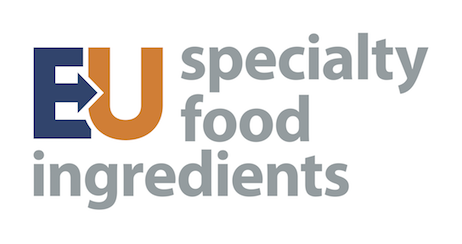EU Specialty Food Ingredients News
2018-01 Fitness check of General Food Law: EU Specialty Food Ingredients findings on industry competitiveness acknowledged by Commission
The European Commission published on 15th January 2018 its final report of the Fitness Check of the General Food Law (also known as “GFL” – Regulation (EC) 178/2002). Launched in 2014, this “Fitness Check” exercise has consisted in assessing whether the GFL is ‘fit for purpose’ for the food/feed sector and whether there is potential for improvement or simplification.
Overall, the European Commission considers that this legal instrument, which sets out the key principles of food and feed law in the EU, “still remains relevant” and that its implementation has “raised the level of protection of public health”.
Rooms for improvement have nevertheless been identified in the report, especially when it comes to the “lengthy authorisation procedures in some sectors” such as food improvement agents, novel foods and health claims. Referring to a study commissioned by EU Specialty Food Ingredients (formerly “ELC”), the Commission notes that whereas companies launching new and innovative products “are looking for internal rates of their investment within a range of 15% to 25% and an expected payback basis of three to five years”, an approval process delayed to three or five years reduces the internal rate to an average of 10.6% and 5.8% and the payback takes from seven to ten years, respectively.
Being the voice of a key sector in the food chain, EU Specialty Food Ingredients was involved in the Fitness Check exercise by providing feedback on the implementation of the EU food law on the ground. We are therefore happy that the Commission has taken note of our members’ findings, which are compiled by economist Graham Brookes in the report entitled Economic impact assessment of EU food related regulations on research, innovation and competitiveness in the specialty food ingredients sector. Delivered at a workshop held in Brussels in June 2016, this report concludes that inefficiencies and uncertainties about regulatory processes discourage investment in research and undermine the competitive position of Europe's food and specialty food ingredients manufacturers.
Our federation also welcomes the fact that the Commission intends to “revisit the modalities of the authorisation procedures to improve coherence and efficiency while accelerating market access” and is ready to support the institutions’ efforts in this endeavour.
News
Press Room
If you're a journalist or PR person, we have complete information packs on various subjects.

